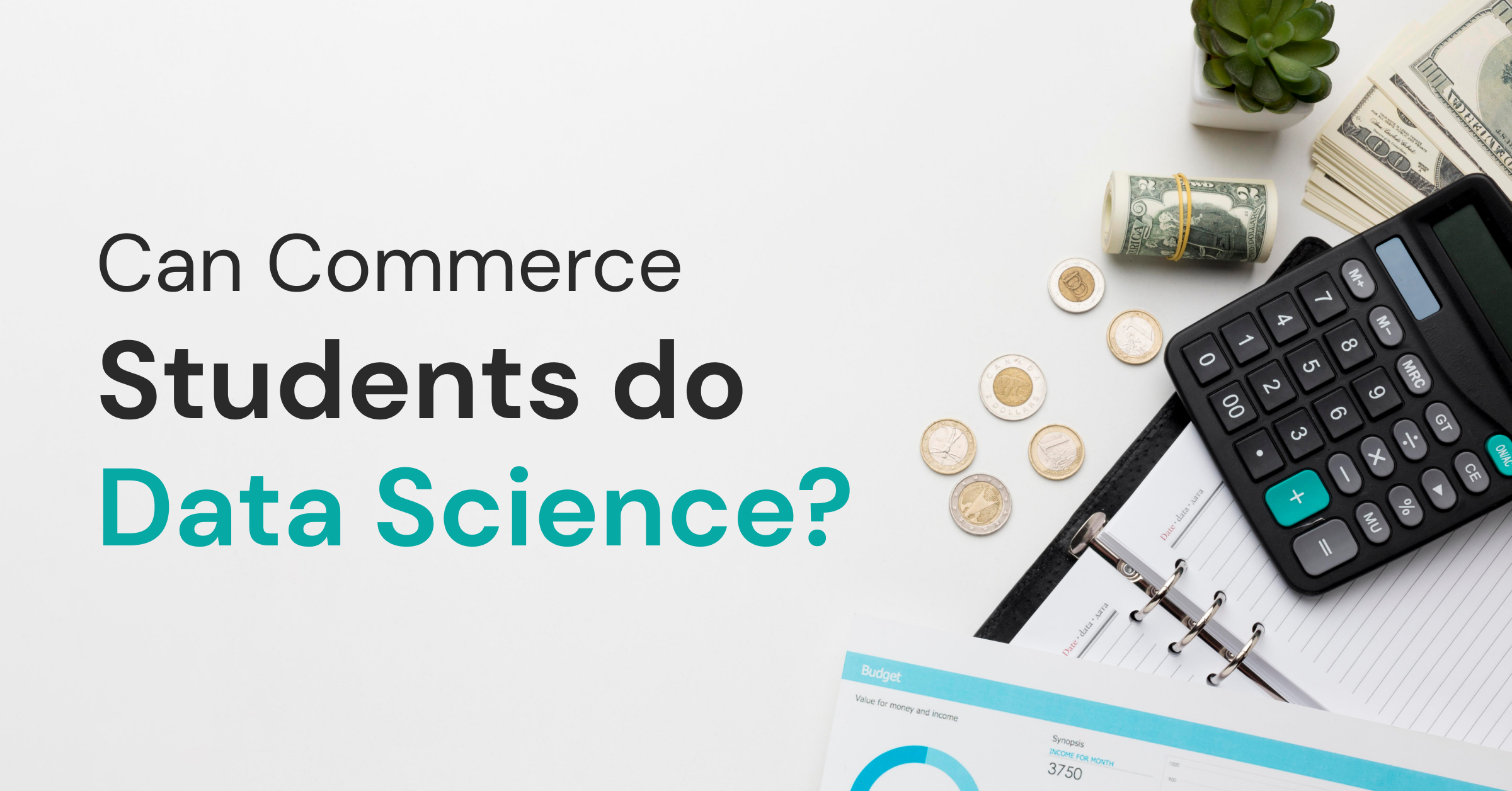
Career Change at 25: A Comprehensive Guide to Starting Fresh
Dec 24, 2024 5 Min Read 125 Views
(Last Updated)
At 25, you might find yourself questioning your career choices. Maybe the job you once thought would be perfect no longer feels fulfilling, or you’ve discovered new interests that are pulling you in a different direction.
A career change at 25 might seem overwhelming, but it’s a pivotal moment where self-awareness and action can pave the way for a more rewarding professional journey.
In this article, we will speak about everything you need to know about career change at 25, offering practical steps and insights to ensure your transition is both intentional and successful. So, without further ado, let us get started!
Table of contents
- Why Change Career at 25?
- How to Approach a Career Change at 25?
- Step 1: Perform a Self-Assessment
- Step 2: Research Career Options
- Step 3: Identify Transferable Skills
- Step 4: Upskill Strategically
- Step 5: Gain Real-World Experience
- Step 6: Build Your Personal Brand
- Step 7: Plan Financially
- Step 8: Apply Strategically
- Overcoming Common Challenges
- Financial Constraints
- Impostor Syndrome
- Gaining Credibility
- The Long-Term Benefits of a Career Change at 25
- Alignment with Personal Interests and Values
- Greater Career Satisfaction
- Enhanced Long-Term Career Growth
- Increased Adaptability and Lifelong Learning
- Conclusion
- FAQs
- Is it too late to change careers at 25?
- How do I know if changing careers is the right decision?
- How can I gain experience in a new field without starting from scratch?
- What if I need to take a pay cut during the transition?
- How long does it take to successfully transition into a new career?
Why Change Career at 25?
Let’s start with some context. At 25, you’ve likely gained 2–5 years of work experience, depending on when you entered the workforce. This experience, whether positive or negative, is invaluable. It has shaped your understanding of professional life and given you clarity about what you want and don’t want in a career.
Here are some common reasons why people consider a career change at 25:
- Lack of Passion or Interest: You may have chosen your current career due to external pressures or limited exposure to other fields. Over time, you might realize it doesn’t ignite your passion.
- Desire for Growth: Your current role might lack opportunities for advancement, learning, or challenges, leaving you feeling stagnant.
- Better Compensation: It’s common to want financial growth, and some careers simply offer more lucrative opportunities than others.
- Alignment with Values: As you mature, your priorities might shift. Perhaps you want a career that aligns more closely with your values, such as sustainability, helping others, or work-life balance.
- Exploration of New Interests: With more exposure to the world, you might discover fields that genuinely excite you, prompting a desire to pivot.
How to Approach a Career Change at 25?
Changing careers at 25 is a bold and exciting step, but it requires careful planning and execution. To make a career change at 25, you need to evaluate your goals, identify the steps required, and strategically position yourself in your desired field.
Let’s break this process into a detailed, step-by-step approach:
Step 1: Perform a Self-Assessment
The first step in a career change is understanding why you want to switch careers and what you truly want from your professional life. This clarity will guide your decisions.
Questions to Ask Yourself:
- Why do I want to change careers?
- Are you feeling stuck, underpaid, unchallenged, or uninspired?
- Is the work environment misaligned with your values or goals?
- What am I passionate about?
- Identify activities, topics, or industries that excite you.
- Consider hobbies or past experiences that brought you joy and fulfillment.
- What are my strengths and weaknesses?
- List skills you excel in and areas where you need improvement.
- What does success look like for me?
- Is it financial security, work-life balance, professional growth, or making an impact?
Step 2: Research Career Options
Once you have a clear understanding of your motivations and strengths, it’s time to explore possible career paths.
How to Research:
- Identify Target Roles:
- Investigate Industries:
- What industries align with your passions and values? For instance, someone passionate about sustainability might explore renewable energy or environmental consulting.
- Understand Market Demand:
- Research fields that are growing or have strong future prospects. Examples include technology (AI, cybersecurity), healthcare, and digital marketing.
- Conduct Informational Interviews:
- Reach out to professionals in your desired field. Ask about their experiences, challenges, and advice for someone entering the industry.
- Create a Shortlist:
- Narrow your options to 2–3 potential careers that align with your skills, interests, and goals.
Resources to Leverage:
- LinkedIn: Use its networking features and job postings to learn about roles.
- Industry Blogs/Podcasts: Follow thought leaders to stay updated on trends. Read industry blogs about the potential career options available.
- Professional Groups: Join forums, Facebook groups, or Reddit communities related to your chosen field.
Step 3: Identify Transferable Skills
One of the biggest misconceptions about career changes is that you’re starting from scratch. In reality, you’re bringing a wealth of experience and transferable skills to the table.
Steps to Identify Transferable Skills:
- Review Your Past Roles:
- Think about skills you’ve used in past jobs, internships, or volunteer experiences.
- Identify Cross-Industry Skills:
- Communication: Writing, presenting, or negotiating.
- Problem-Solving: Creative solutions or conflict resolution.
- Project Management: Planning, organization, and deadline management.
- Technical Proficiency: Mastery of tools (e.g., Microsoft Excel, coding, or graphic design).
- Map Skills to Target Roles:
- Compare your skills with the requirements of your desired roles. Highlight overlapping areas to build confidence and clarity.
Step 4: Upskill Strategically
Changing careers often requires learning new skills. Fortunately, the rise of online learning platforms and flexible educational programs makes upskilling accessible to everyone.
How to Upskill:
- Take Online Courses:
- Platforms like GUVI, Coursera, Udemy, and LinkedIn Learning offer affordable courses in fields like coding, marketing, or data analysis.
- Earn Certifications:
- Many industries value certifications provided by institutions like GUVI’s Certified Career Courses that can boost your resume.
- Attend Bootcamps:
- Coding boot camps or digital marketing programs provide immersive, fast-tracked learning experiences.
- Leverage Free Resources:
- YouTube tutorials, blogs, and podcasts are excellent for gaining foundational knowledge.
- Consider Formal Education:
- For careers like nursing, law, or engineering, formal education may be necessary. Research part-time or online programs that allow you to work while studying.
Step 5: Gain Real-World Experience
Employers value hands-on experience. Building a portfolio or gaining practical exposure can set you apart as a candidate.
Ways to Gain Experience:
- Freelance Work:
- Platforms like Upwork or Fiverr allow you to work on real projects and build a portfolio.
- Volunteer:
- Offer your skills to non-profits or startups to gain experience while giving back.
- Internships:
- Many companies offer paid or unpaid internships to career changers.
- Personal Projects:
- Build a portfolio through personal projects. For example, aspiring graphic designers can create mock campaigns or logos.
Step 6: Build Your Personal Brand
Your personal brand communicates who you are and what you bring to the table. It’s crucial for making a strong impression in your new field.
Steps to Create Your Brand:
- Update Your LinkedIn Profile:
- Rewrite your summary to reflect your new career goals.
- Highlight transferable skills, certifications, and relevant projects.
- Build a Portfolio:
- Showcase examples of your work, including freelance projects, coursework, or personal initiatives.
- Create an Elevator Pitch:
- Craft a 1–2 sentence pitch explaining your career transition and goals.
- Network Intentionally:
- Attend industry events, webinars, or meetups.
- Join online communities or forums in your chosen field.
Step 7: Plan Financially
Career changes can involve a temporary pay cut or gaps in income. Being financially prepared will reduce stress during the transition.
Financial Tips:
- Save Up:
- Build an emergency fund with 3–6 months of living expenses.
- Budget:
- Cut unnecessary expenses and prioritize essential spending.
- Side Hustles:
- Take on freelance work, part-time jobs, or consulting gigs to support yourself.
Step 8: Apply Strategically
Once you’ve built skills, gained experience, and refined your personal brand, it’s time to apply for jobs in your new field.
Application Tips:
- Tailor Your Resume:
- Emphasize transferable skills and relevant experiences.
- Write a Compelling Cover Letter:
- Explain your career change and how your background makes you a unique candidate.
- Prepare for Interviews:
- Be ready to address why you’re transitioning and highlight your passion and preparation.
Approaching a career change at 25 requires thoughtful planning, self-awareness, and persistence. By following these detailed steps, you can confidently navigate the transition and set yourself up for long-term success.
Overcoming Common Challenges
1. Financial Constraints
Starting over might mean a temporary pay cut. Here’s how to manage:
- Save Before Transitioning: Build a financial cushion to support yourself during the shift.
- Side Hustles: Consider part-time work or freelancing to supplement your income.
2. Impostor Syndrome
Feeling like you don’t belong in your new field?
- Reframe Your Mindset: Everyone starts somewhere. Your willingness to learn and adapt is a strength.
- Leverage Your Unique Perspective: Your diverse background can be an asset in bringing fresh ideas to your new industry.
3. Gaining Credibility
If you lack experience, focus on small wins:
- Earn certifications.
- Contribute to open-source projects (tech fields).
- Write blogs or create content about your learning journey.
The Long-Term Benefits of a Career Change at 25
Changing careers at 25 might seem daunting, but it’s a decision that can significantly impact your life in positive ways. Here’s why:
1. Alignment with Personal Interests and Values
At 25, you’re likely more self-aware than you were at 18 or 21. A career change at this stage allows you to pursue a path that aligns better with your interests, passions, and core values.
- Increased Motivation: Doing work you’re genuinely passionate about fuels your drive and enthusiasm, making each day feel more purposeful.
- Value-Driven Work: Choosing a career that aligns with your principles (e.g., sustainability, creativity, helping others) leads to greater satisfaction and pride in what you do.
2. Greater Career Satisfaction
Career satisfaction is one of the most significant determinants of long-term happiness. Making a career change at 25 allows you to move toward roles and environments that suit your personality and aspirations.
- Customized Roles: You can find or shape roles that better suit your skills, strengths, and working style, whether it’s collaborative, creative, or independent.
- Avoiding Burnout: Transitioning to a career you enjoy helps mitigate the risk of burnout, which often stems from prolonged dissatisfaction and disengagement in work.
3. Enhanced Long-Term Career Growth
Switching to a more dynamic or high-demand field at 25 can unlock better opportunities for career advancement over the years.
- Higher Salary Potential: Many fields offer higher earning potential, especially if you enter an industry that values your transferable skills and willingness to learn.
- Better Career Trajectory: By entering a growing field (e.g., tech, healthcare, renewable energy), you position yourself for roles with upward mobility and evolving opportunities.
4. Increased Adaptability and Lifelong Learning
Changing careers at 25 often requires learning new skills, building resilience, and adapting to unfamiliar environments—all of which are invaluable in today’s rapidly changing world.
- Embracing a Growth Mindset: Making a bold change helps you develop the mindset that learning and growth are lifelong pursuits, which is critical for staying relevant in the workforce.
- Future-Proofing Your Career: By entering a forward-thinking field, you’re better equipped to handle changes in the job market caused by automation, globalization, or economic shifts.
The long-term benefits of a career change at 25 extend far beyond just the immediate perks of a new job. From greater alignment with your passions and values to enhanced financial stability and personal growth, making this decision now positions you for a fulfilling and thriving career.
Conclusion
In conclusion, a career change at 25 isn’t a setback, it’s a strategic move toward a more fulfilling future. By reflecting on your goals, researching your options, and taking practical steps, you can create a career that genuinely excites and inspires you.
Remember, your career isn’t a straight path. It’s okay to take detours and make adjustments as you grow and evolve. The important thing is to take action and trust the process. Your future self will thank you!
FAQs
1. Is it too late to change careers at 25?
Not at all! At 25, you have the advantage of work experience combined with the flexibility to adapt and learn. It’s the perfect time to pivot before becoming deeply entrenched in a particular career path.
2. How do I know if changing careers is the right decision?
Reflect on your current job’s impact on your happiness, growth, and goals. If it feels unaligned with your passions or values, or if you’re craving new challenges, a career change might be worth considering.
3. How can I gain experience in a new field without starting from scratch?
Leverage transferable skills, pursue certifications, or volunteer in roles related to your target field. Freelancing, internships, or personal projects can also help build relevant experience and credibility.
4. What if I need to take a pay cut during the transition?
While a temporary pay cut is common, think of it as an investment in your future. Plan financially by saving, budgeting, or supplementing income through side gigs to ease the transition.
5. How long does it take to successfully transition into a new career?
The timeline varies based on the complexity of the field and your starting point. On average, it can take 6 months to 2 years to reskill, gain experience, and secure a stable role in a new industry!

























![Top 9 TCS Xplore Python Coding Questions [DeCode with GUVI] 4 TCS Xplore Python Coding Questions](https://www.guvi.in/blog/wp-content/uploads/2022/08/6.-TCS-Xplore-Python-Coding-Questions.png)






Did you enjoy this article?